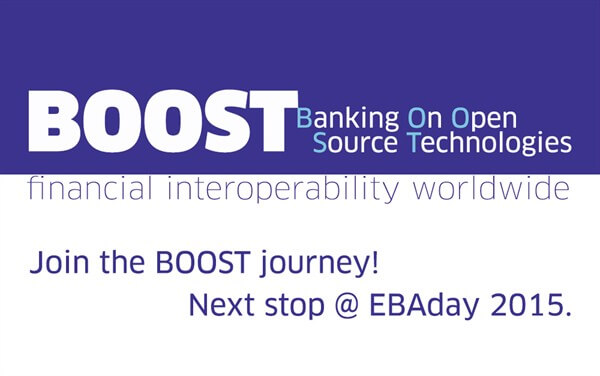On May 12-13th this year, senior executives, practitioners and key stakeholders from across the payments industry gathered in Amsterdam for the 10th edition of EBAday, the annual congress organised by the Euro Banking Association and Finextra Research. It also market the 30th anniversary of the Association’s founding. Like every year, the conference proposed a main discussion topic and all the streams, interactive workshops and panel discussions gravitated around it. This year, it was quite visionary: “Payments 2020 –From Vision to Action”.
To be more specific, the event’s agenda followed two discussion threads, through parallel streams:
- European banking industry regulations and
- digital revolution in the banking sector.
A noteworthy fact is that there were more EBAday participants attending the sessions about the way banks can adapt to an ever growing customer demand for agility from their financial services providers, about electronic and mobile payments and crypto-currencies transactions and instant payments. It looks like the main theme chosen by EBAday’s organizers was aligned to today’s financial market concerns.
Regulations
The time for SEPA discussions monopolizing EBAday is gone as the banking community in the Euro zone is fully compliant with the ISO20022 standards. But different interpretation for the same standard and flavoured XML messages implementations led to market fragmentation. In order to meet the SEPA compliance deadline, banks have implemented solutions that vary from one community to another, third party convertors and services that helped them demonstrate their conformity with SEPA. A trend aiming to refine this implementations is growing; it is set to use XML format benefits to the maximum and to replicate the standard to cover all payments, not only credit transfer and direct debit, thus maximizing the investments made. Tighter collaboration and coordination between banking institutions is needed to overcome existing market fragmentation. They don’t necessarily need to come from regulators, but rather due to the market’s demand and that of banking industry players.
The banks’ potential for innovation and for offering competitive services within the market’s dynamic frame has also been open for debate. Banks need to take into account that nowadays they are competing with non-banking providers who get every day more agile, precisely because they don’t need to prove compliance with industry regulations and therefore can bring in a business model different from the banks’.
Instant payments – Real time payments – Immediate payments
 By far the hottest subject on the agenda was instant payments / real time payments / immediate payments. Customers are each day more demanding when choosing their service providers; the choice criterions include speed of response, speed of action (in real-time, if possible), accessibility and ease of use. When it comes to banks, their expectations are as high, at least. Financial services providers not being able to keep pace may lead to the intensely debated scenario of “banking without banks”. Banks have already started losing customers to non-banking competitors, as the latter have a different approach:
By far the hottest subject on the agenda was instant payments / real time payments / immediate payments. Customers are each day more demanding when choosing their service providers; the choice criterions include speed of response, speed of action (in real-time, if possible), accessibility and ease of use. When it comes to banks, their expectations are as high, at least. Financial services providers not being able to keep pace may lead to the intensely debated scenario of “banking without banks”. Banks have already started losing customers to non-banking competitors, as the latter have a different approach:
- they build their products based on customer experience, unlike banks who launch a product only if they have a “business case”;
- they are global, unlike banks who ordinarily are regional;
- they are smaller organizations, thus more agile and adaptable, unlike banks who are usually concentrated in very large groups;
- they fall under different regulations than banks.
What’s fascinating is that the conclusions to these kinds of debates were drawn, in the majority of sessions, by people coming from the banking environment. They advised banks to invest in products that satisfy these new and growing customer needs, even without a business case, that is if they want to survive and keep their customers in a more and more competitive world. To this end, the banks’ value chain needs rebuilding, to be adapted to the future. It takes an Executive willing to take risks, to manage the change of the old working model into a new one, favourable to the banks; an open minded Executive that can take competition challenges and transform them into opportunities, rather than treat them as threats. A start may be the investments already made in the SEPA standards!
Allevo at EBAday
For the 7th year in a row, we were among the exhibitors. As in the previous years, it was a great opportunity to meet old partners and discuss joint campaigns, but also to arouse interest in new potential customers and partners which are not yet familiar with Allevo’s portfolio.
In the context of instant payments endless discussions and concern for banks being open towards flexible, easy to implement solutions, visitors felt inclined to come by our stand. They wanted to know more about our FinTP – the open source solution for financial transactions processing – and FINkers United, the community built around, gathering financial and IT experts willing to grow the project together. Collaboration and sharing within a community interested in developing a financial transactions processing solution (non-differentiating software) can easily help concentrating efforts and resources toward the front-office, more specifically towards designing and offering best quality innovative products to the end customers.
Benefiting from the change of distribution model (from commercial to open source) and the evolution of demands on the financial market, FinTP starts gaining the interest of European banks, becoming “the right solution, in the right place at the right time”!










